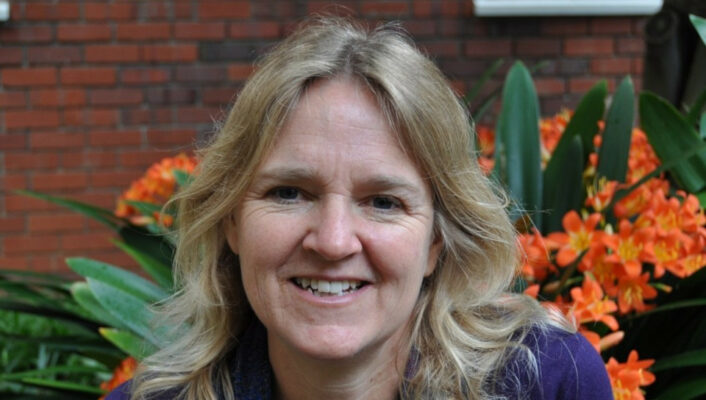Q&A with One Ocean Hub Researcher: Dr Jackie Sunde

Dr Jackie Sunde
Why did you become interested in researching the ocean?
“I grew up spending a great deal of time along the Eastern coast of South Africa where there are extensive Stone Age archaeological shell middens. When I was five I found a ceramic lug from an earthenware pot and my mother found an exquisite mother-of pearl carved shell artefact, dating back to early indigenous people of the sea. Learning that these came from people who had lived on the coast hundreds of years ago drew me into a lifelong connection with the sea and those who had walked our shores before me.”
What major concerns do you have related to the oceans?
“I am deeply concerned about the way in which our colonial and racist state-dominated, top down ocean governance has excluded indigenous communities in South Africa, as well as elsewhere to date. We have failed to respect their human rights and learn from their deep local ecological knowledge. This is a human rights imperative but now, in the current context in which we are witnessing climate change impacts coupled with the extractive nature of the Blue Economy there is a pressing need to work closely with indigenous peoples and local communities if we want sustainable governance that protects ocean and coastal resources.”
How would you describe your current research in three sentences?
“Exploring the impacts of the Blue Economy on complex socio-ecological systems from a social justice and sustainability perspective, with a specific focus on traditional, artisanal and small-scale fishing communities.
“Learning new ways of experiencing and knowing the ocean through transdisciplinary engagements.
“Creating and building partnerships with guardians and custodians of the ocean, from local to global level.”
How does your work help us to re-think the current ocean issues/challenges?
“I hope that it contributes towards understanding the complex interdependencies between social justice, economic development and environmental sustainability.”
What are the aspects of working in a collaborative environment such as the One Ocean Hub that you value the most?
“I am appreciating the opportunity to work across disciplinary boundaries with other scientists, researchers and activists in a mutually respectful way, to co-create new relationships in this ocean space. Until recently much of my work on the social dimensions of ocean governance and supporting the human rights of small-scale fishing communities has led me into adversarial relationships with government officials and marine scientists who I felt focused narrowly on the ecological dimensions of governance. The very rich transdisciplinary nature of the One Ocean Hub, coupled with the very creative methodologies and commitment to shared values provides a unique opportunity to learn and reach across disciplinary boundaries. I am constantly challenged to abandon my prejudices as the intentions and approach of fellow One Ocean Hub colleagues, irrespective of discipline or prior learning is one of real openness, empathy and shared passion and commitment towards the same over-arching goal.”
What keeps you going/motivates you in your research? (or more formal: what motivates you?)
“The wisdom and resilience of the local indigenous fishing communities with whom I work in South Africa, who constantly teach me so much about their relationship with nature, our shared commons and our common humanity.”
The One Ocean Hub aims to transform ocean governance. How does your research contribute to it?
“I hope it will contribute towards bringing awareness to different ways of knowing the ocean, and help to bridge the social-ecological, tangible-intangible, human-non-human binaries that we have inherited, transforming our approach to ocean governance in myriad ways.”